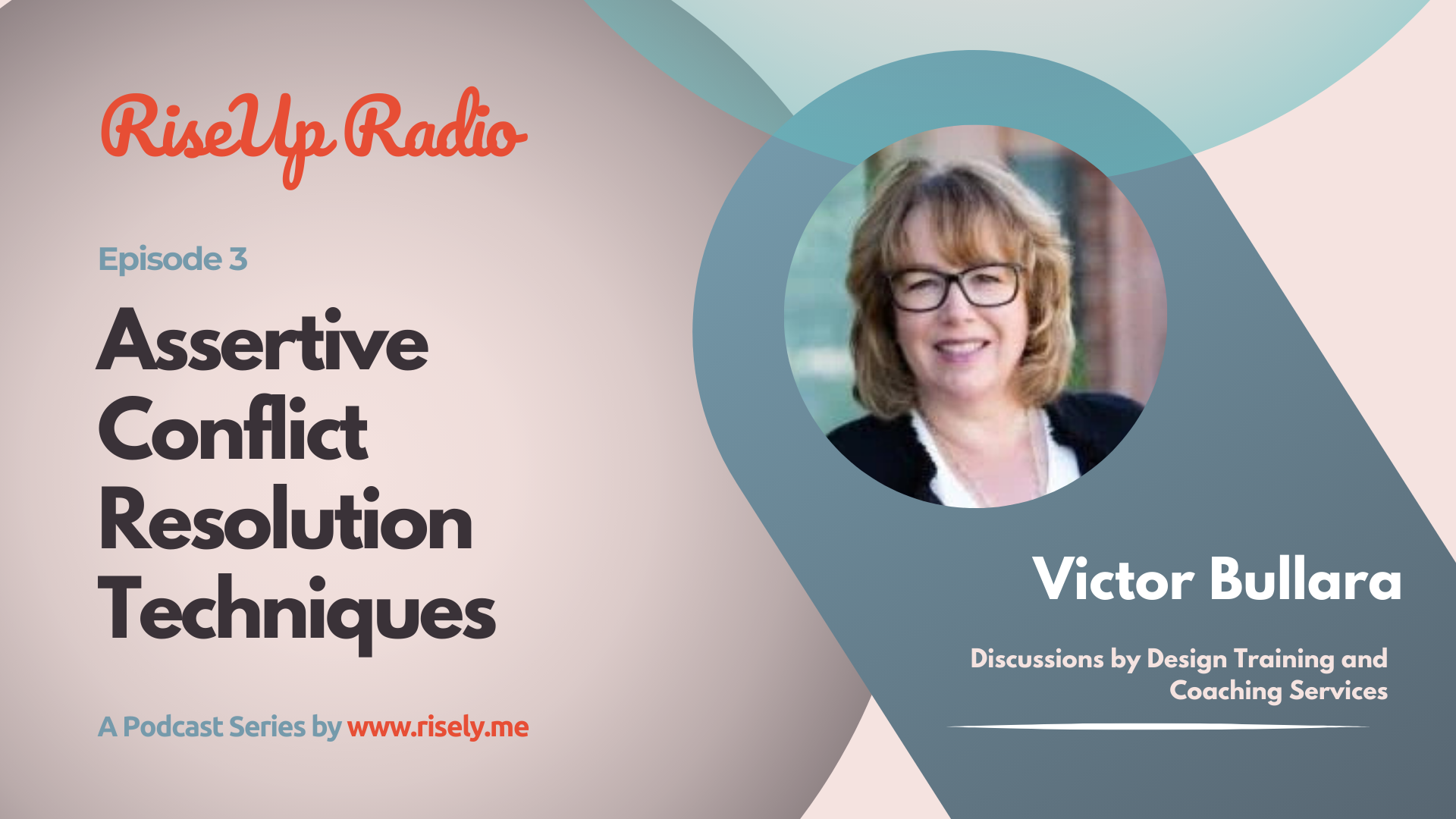6 Effective Ways to Manage Conflict at Work
Conflict at work can be difficult to deal with, but it’s something that every manager needs to be aware of and prepared for. If you’re not expecting it and aren’t ready to manage it, it can quickly become a source of tension and chaos. This blog discusses the top 6 ways to manage conflict at work for managers and leaders. We have also discussed various types of workplace conflicts and why managers should give conflict management a top priority. By taking these steps, you’ll better equip yourself to manage conflict at work, and everyone will be happier! So, let’s start with understanding what exactly a conflict is.- 6 Effective Ways to Manage Conflict at Work
- What is a Conflict?
- Who is responsible for managing and resolving these conflicts?
- Why should managers try to manage conflict at work?
- What do typical workplace conflicts look like? 3 Workplace conflict scenarios for managers
- How to resolve conflict in the workplace as a manager? 6 Effective Ways
- Conclusion
- Managing Conflict at Work FAQs
- Other Related Blogs
What is a Conflict?
Conflict is a disagreement or hostility among individuals or groups about something. It can be physical, verbal, emotional, social, and even workplace. It is defined as a disagreement or argument between people or groups of people, typically a heated one. Anything from a dispute about a project at work to a disagreement about resource allocation can spark a conflict. Conflict can be healthy or harmful, constructive or destructive, depending on how we handle it. In general, though, we see conflict as unfavorable because it can lead to division, anger, and even violence. It’s often best to resolve workplace conflicts as quickly and peacefully as possible. Conflict is an inevitable and often necessary part of the workplace. It is basically when two or more people are working together to accomplish a common goal, and they encounter difficulties with each other. It adds stress for both managers and employees as it can be tiring and overwhelming to have conflict constantly in the workplace.Other Interesting Reads
Who is responsible for managing and resolving these conflicts?
It is not difficult to answer this question. Managers are the obvious ones responsible for conflict management and conflict resolution. Conflict management skills are a significant part of the skills required for managers to be effective in their roles. They are responsible for both setting up the work environment and team dynamics. Managers are in charge of making sure everyone gets along within the organization. They do it by always doing their due diligence to pay attention to any potential conflicts. Additionally, administrators such as HR managers or senior management have a significant role in controlling the process of managing conflicts at organizational levels and how it affects individual employees (e.g., employee turnover). Managers are not just responsible for managing conflicts, but they also need to give managing these conflicts top priority. Let’s now discuss the reasons behind it.
Why should managers try to manage conflict at work?
There are many reasons why managers should give top priority to managing conflict at work. Some of the biggest and the most common ones are as follows:- Conflict can lead to less efficient work and lower productivity
- It can cause morale problems, sow distrust and discord within teams, and impair team performance
- Workplace conflicts can even lead to lawsuits or other legal disputes
- It can negatively impact the organization’s image and brand
- It can increase staff turnover rates
- Managing conflict effectively is essential for fostering organizational trust and communication
- Effective resolution of conflict at work leads to cooperation, improved teamwork, more productive employees, and ultimately firmer relationships

What do typical workplace conflicts look like? 3 Workplace conflict scenarios for managers
Scenario 1: Mediation
Two employees in a marketing department are having a conflict about the use of resources. One believes that the other is using too many resources for their project, while the other believes they are justified in their usage. The manager decides to mediate the conflict by meeting with both employees. During the meeting, the manager encourages both parties to listen to each other’s perspectives and to find common ground. The manager facilitates the discussion and helps them devise a compromise where the employee using the resources agrees to share them with the other employee and work together more closely in the future. The manager also sets up a follow-up meeting to ensure the agreement is upheld. Read more: How Negotiation And Conflict Resolution Go Hand-In-Hand? With 5 ExamplesScenario 2: Collaboration
A sales team is having a conflict over a new client, with two employees competing for the same account. The manager resolves the conflict by encouraging the employees to work together on the account. The manager suggests they pool their strengths and skills to give the client the best possible service. The manager facilitates a brainstorming session where both employees contribute their ideas and develop a plan of action. They agree to divide the work and keep each other updated on progress. The manager also sets up a system for regular check-ins to ensure successful collaboration.Scenario 3: Coaching
Two employees in a production department are having a conflict over the quality of work. One employee believes that the other is not producing work that meets the required standards, while the other believes that their work is satisfactory. The manager decides to resolve the conflict by coaching both employees. The manager sets up individual meetings with each employee to discuss their perspectives and provides feedback on their work. The manager also offers guidance, suggestions for improvement, and plans for ongoing training and support. The manager follows up with both employees regularly to monitor their progress and ensure the conflict has been resolved. Read more: Coaching Employee with Negative Attitude to turn them around in 5 easy stepsHow to resolve conflict in the workplace as a manager? 6 Effective Ways
Create an atmosphere of trust and mutual respect
The first step for managers to effectively manage workplace conflicts is to create an atmosphere of trust and mutual respect. Managers should create a work environment where employees feel comfortable sharing disagreements, different viewpoints, resentment, or problems. They can do this by creating a climate of openness and communication. They should also be fostering trust between managers and subordinates. When employees feel that managers respect their concerns and they can talk to their manager openly about any conflict, managing the conflict will get easier. Lack of trust and mutual respect leads to conflicts becoming entrenched, making it more challenging to resolve them.Listen attentively and offer constructive feedback
Active listening to employee concerns is the best way for managers to understand better the problems and emotions that have led to the conflict. Managers should ask questions to understand what led to the conflict from each person’s point of view. This type of effective communication is essential in resolving disputes. Because it allows both parties involved in a dispute to voice their opinions without feeling judged or defensive. Additionally, by offering constructive feedback after listening to the concerns, managers can help employees understand the real reason behind the conflict they are finding themselves in. It can help employees easily overcome conflict at work. It will also help them learn, which may help them avoid these conflicts in the future. That will ultimately make it easy to manage conflicts. Read more: Practicing Empathetic Communication: 5 Secrets of Successful ManagersAddress the root cause of the conflict promptly
Once they identify a conflict at work, managers need to address its underlying cause as soon as possible. You can do this by discussing the problem openly and candidly and addressing the point of view of both parties involved. Managers can then create a common ground and work together to develop a solution that satisfies all parties quickly. If they do not resolve the conflict soon, it may become entrenched and more difficult to determine. Getting to know the root cause can allow managers to come up with new ways or interventions to avoid the same in the future. What are the common workplace conflicts? Identify the types here.
Avoid getting drawn into an argument or a heated debate with your colleagues
Managers should make sure to keep the arguments internal to the workplace. They should, very importantly, avoid getting drawn into a heated debate with their colleagues. Getting drawn into a heated discussion will be ineffective in resolving the conflict, but it may also lead to further resentment. These heated debates can also be counterproductive to delivering objectives and goals set by the organization. To avoid this and manage workplace conflicts effectively, managers should respond to employee concerns but not take a negative response personally. When disagreements do arise, managers should control their emotions and should try to address them calmly and rationally using constructive criticism. If the conflicting parties do not agree with the best solution you could provide, you should not lose your cool. It would be best to work together with them to develop a different solution or course of action that can prove acceptable to the conflicting parties.Avoid personal attacks or demeaning comments directed at others
Many people view workplace conflicts as an opportunity to attack the other person and try to win. However, this type of behavior is counterproductive and will only lead to further conflict. Managers should avoid personal attacks or demeaning comments directed at others to manage conflicts effectively. When tensions are running high, it can be challenging to stay calm and constructive. However, resorting to personal attacks will only make the situation worse. Demeaning comments damage relationships and can also be damaging to a company’s reputation. Managers should try to stay focused on the issue at hand. They should remember that the goal is to manage and resolve the conflict and not to initiate another one. Therefore, they should avoid personal attacks or demeaning comments as doing so will help maintain a positive working environment. It will also help to resolve the conflict more effectively. Instead of passing these attacks or comments, managers should empathize with the conflicting parties. Doing that will make all parties feel safe and secure. It leads to greater insight and a more effective resolution of the issue at hand.- Check out the do’s and don’ts of constructive feedback too.
Offer support and praise when a conflict is resolved
When a conflict is resolved, it’s essential to offer your employees sincere congratulations and show them support in their recovery. You can do it by praising them for their efforts, providing assistance if needed, or sending a thank you note. Providing recovery support to employees after resolving the conflicts can show how much the organization takes their personal growth and development into importance. It will also provide employees with a sense of security. Further, managers can build trust with their team members by communicating appreciation and encouragement. All that together can also help avoid further conflicts among colleagues after conflict resolution has been achieved.Conclusion
In today’s competitive and fast-paced world, workplace conflicts are inevitable. But not all conflicts are created equal. Some are miscommunications or misunderstandings, while others can escalate into full-blown disputes that can hurt team productivity and morale. As a manager, it’s your responsibility to know the different types of workplace conflicts and resolve conflict at work effectively. You should know that you are the one responsible for managing them. Further, you should also know how to resolve them to benefit everyone involved. We’ve outlined the 6 top easy-to-follow ways to manage conflict at work in this blog. So whether you’re a new manager just starting or an experienced one looking for new and innovative ways to manage conflicts successfully, we believe these ways will help you out.Deeksha, with a solid educational background in human resources, bridges the gap between your goals and you with valuable insights and strategies within leadership development. Her unique perspectives, powered by voracious reading, lead to thoughtful pieces that tie conventional know-how and innovative approaches together to enable success for management professionals.
Test your conflict management skills for free!
Take the free conflict management assessment now to assess areas that need improvement.
Managing Conflict at Work FAQs
What are the most common conflicts at work?
Common conflicts at work arise due to task-based differences or personality differences. Different opinions and working styles can also cause conflicts. These differences can grow into more significant conflicts when they are not dealt with maturely.
How to manage conflict between employees?
The key to managing conflict effectively as a manager is understanding the issue from multiple perspectives. It starts with being open to differing opinions, letting go of biases, and maintaining an objective approach when making decisions. Also, encourage employees to work out issues amicably.
How can conflict in the workplace affect the team?
Frequent conflicts create a hostile work environment which harms employees’ psychological safety. Typically, conflicts bring down productivity and reduce team cohesion. It contributes to lousy performance and can lead to high absenteeism and turnover among employees.
Other Related Blogs
Assertive Conflict Resolution Techniques | Brenda Hooper
Assertive Conflict Resolution Techniques | Brenda Hooper Can assertive communication help you out in resolving conflicts? In this podcast conversation, we have Brenda Hooper, an experienced executive coach joining us…
7 Conflict Resolution Scenarios At Work For Practice
Conflict resolution is one of the most important people management skills you must master. If conflicts on your team go unresolved, you must wait with bated breath for them to…
Conflict Coach 101: A Beginner’s Guide
Conflict Coach 101: A Beginner’s Guide Did you know? Since 2008, we have doubled the hours we spend in conflicts at work. Research by the Myers-Briggs Company suggests that an…
5 Secrets To Conflict Resolution At Work For Managers
5 Secrets To Conflict Resolution At Work For Managers Conflict is all too common. We often encounter this ever-present demon in our workplaces, too. The trouble is manifold for managers…







